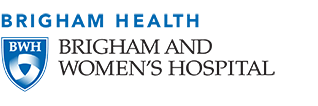
Session 3
SELF-COMPASSION
-
Understand the concept of self compassion and observe your own level of self compassion
-
Practice two tools for promoting self compassion: the “How would you treat a friend?” exercise and the self-compassion break
-
Learn about “equanimity phrases” and discuss how they could apply to your work

WHAT IS SELF COMPASSION?
Mindful Self Compassion* requires 3 things:
-
The ability to recognize our own suffering (mindfulness)
-
The ability to acknowledge that suffering is common and everyone suffers as part of life (this may also be termed common humanity).
-
The ability to respond to suffering with kindness and empathy.
Reflection:
1) How does the above definition compare to how you think about “self-compassion”?
2) Based on the above definition, what is your current level of self-compassion? Has that changed in any way since starting residency?
*As defined and studied by Kristen Neff, PhD and Christopher Germer, PhD. To learn more, go to: https://self-compassion.org/the-three-elements-of-self-compassion-2/
Tools for Self Compassion:
1) "How would you treat a friend?"- A helpful tool for understanding and practicing self-compassion is to imagine how we might treat a friend facing a similar situation. We may find it easier to extend kindness to others rather than ourselves. Self-compassion is not about selfishness--it is treating ourselves no better (and no worse) than others. Take five minutes to complete this exercise:
2) Now practice taking a 5 minute self compassion break
Equanimity Phrases
Finally, please read these equanimity phrases as a group:
Everyone is on their own life journey.
I am not the cause of this patient's suffering, nor is it entirely in my power to make it go away, even if I wish I could.
Doctoring can be very difficult, yet I will still try to help to the extent that I can.
Reflection: How do these phrases relate to your work? When can you imagine using them?
To learn more, you can see the noon conference led by Dr. Christopher Germer that 1) explains self compassion (begins 3:17), and 2) includes a self compassion break (starts at 27 min,) and a mindfulness exercise using equanimity phrases (40:21).
There are also free guided mediations as well as a mindful self-compassion workbook available for additional practice for those interested:
https://centerformsc.org/practice-msc/guided-meditations-and-exercises/
